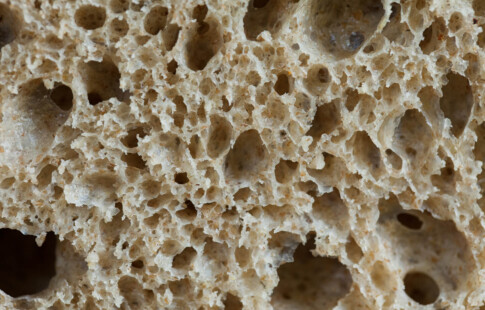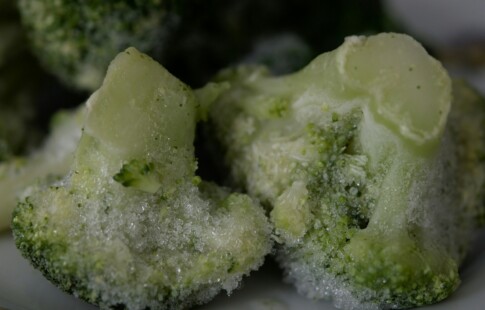
Differences Between Veganism vs Vegetarianism
We are reader-supported. When you buy through links on our site, we may earn affiliate commission.
Popular documentaries like Cowspiracy and What the Health promoted the current plant-based dietary trends. Eco-consumer demands are altering the retail market. Commercial fast-food restaurants now serve meatless patties, and coffee shops offer dairy-free milks, following customers’ shifts towards sustainability
Many individuals are reducing their consumption of animal products to shrink their carbon footprints. Various aspects of the agricultural production process affect a food item’s eco-friendliness. Individuals can determine the most sustainable diet, supporting their lifestyles by exploring the differences between veganism vs vegetarianism.
What is Veganism?
When consumers reference the plant-based diet, they are generally referring to veganism. Individuals who follow vegan consumer habits eliminate their intake of livestock and products deriving from animals. The diet’s primary goal is to decrease animal exploitation, meeting environmental and ethical standards.
Veganism also extends beyond one’s diet into all aspects of consumption. Some vitamins and medications contain gelatin, an ingredient composed of cattle and pig bones. Vegans may consume gelatin-free pills to decrease their reliance on animal manipulation.
Similarly, many skin and hair care products contain animal-derived ingredients, limiting their sustainability levels. Individuals consuming plant-based diets also refrain from eating honey and milk. Though the products may not contain animal parts, they involve the exploitation of creatures, reducing their compatibility with vegan ideals.
What is Vegetarianism?
Vegetarianism is similar to veganism because both diets refrain from meat consumption. Though vegetarians avoid the intake of livestock, they do eat products deriving from animals, like milk and eggs. Some individuals following the diet only apply its values to food items.
While a vegetarian may avoid consuming beef, they may still purchase a leather wallet. Many individuals engage in the meat-less diet to improve their health and well-being. Vegetarian consumption patterns effectively reduce one’s risk of heart disease, stroke and high blood pressure.
Meatless diets also decrease an individual’s risk of developing certain cancers. Another critical benefit of eliminating animals from your diet is shrinking your carbon footprint. One’s dietary consumption patterns significantly affect their sustainability levels.
The Most Potent Greenhouse Gas
Farm animals, especially cattle, contribute to climate change through methane pollution. The agricultural production sector creates nearly 10% of all greenhouse gas emissions. Methane is one of the most potent air pollutants on Earth, interfering with the atmosphere’s ability to regulate surface temperatures.
Earth relies on the atmosphere’s consistent composition to support the global ecosystem. Naturally, the planet absorbs solar radiation and makes heat to warm its surface. It also collects excess energy and sends it to space, creating life-sufficient temperatures.
When greenhouse gases, like methane, invade the atmosphere, they increase Earth’s ability to create heat. They also contain excess energy in the environment and re-filter it through the heat production process. Over time, emissions raise Earth’s temperature, creating a ripple effect of ecological degradation.
Both vegan and vegetarian diets reduce the enhanced greenhouse effect by limiting methane emissions. Livestock release the pollutant through belching, accumulating in the atmosphere over time. When society adopts meatless diets, it can reduce the number of farm animals producing emissions, conserving the environment.
Key Sustainability Differences
Vegan and vegetarian diets have various differences, especially in terms of sustainability. While both minimize a consumer’s reliance on livestock, vegetarians still support dairy production. Milk-producing cattle also release methane emissions, fueling climate change.
Poor management techniques, like manure and fertilizer handling, can additionally cause ecological challenges. Professionals use additives on farmland to increase its compatibility with livestock. When it rains, stormwater can transfer the additives to the ocean, creating algal blooms.
When algae grow, they deplete local aquatic oxygen levels, producing dead zones. Species must flee from their habitats, sourcing a more compatible location following eutrophication. While migrating, many creatures experience food and shelter scarcity, placing them in danger.
Animal farming also requires extensive land use, promoting clear-cutting and deforestation. Farmers must expand their production space to meet consumer demands. Grazing animals need open fields to develop, and limited natural spaces cause professionals to create them artificially.
Deforestation is a significant challenge associated with animal-product consumption because trees naturally filter carbon dioxide. One developed tree can filter nearly 48 pounds of emissions annually, preserving the atmosphere’s natural state. The vegan diet reduces the effects by minimizing the demand for clear-cutting.
Veganism also creates environmental challenges like increasing the need for outsourced produce. Climate-change-related droughts limit agricultural production rates in the U.S. Grocery stores must rely on other countries for fresh fruits and vegetables, supporting society’s dietary needs.
Which Diet is Right for You?
While both veganism and vegetarianism have ecological downfalls, they are more sustainable than meat-consuming diets. When evaluating which diet to adopt, individuals must consider their local resources and additive impacts. Engaging in a vegan diet is most sustainable when substituting meat products for local, organic, plant-based food sources.
Share on
Like what you read? Join other Environment.co readers!
Get the latest updates on our planet by subscribing to the Environment.co newsletter!
About the author

Jane Marsh
Starting from an early age, Jane Marsh loved all animals and became a budding environmentalist. Now, Jane works as the Editor-in-Chief of Environment.co where she covers topics related to climate policy, renewable energy, the food industry, and more.





